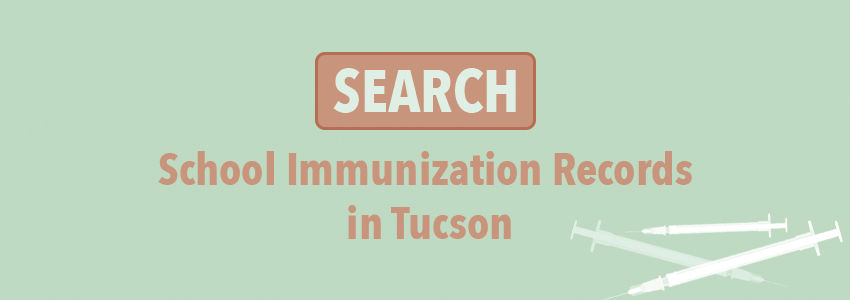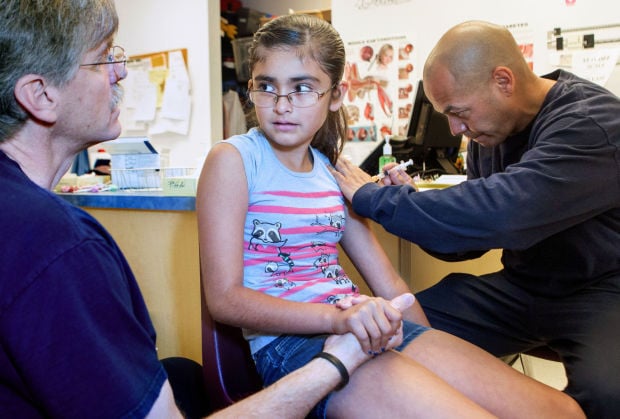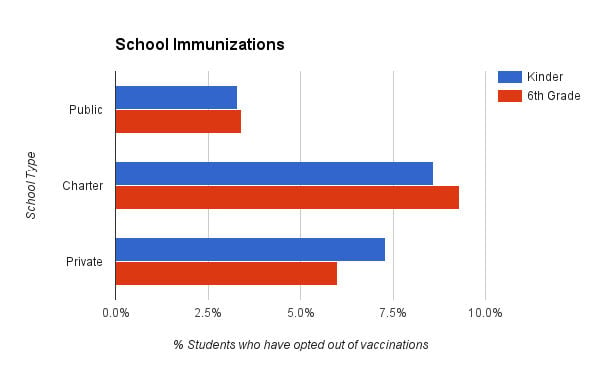Backpack? Check.
Water bottle? Check.
Lunch box? Check.
Immunizations? …
As children head back to school, Pima County health officials are reminding parents of the importance of vaccinating their children, not only for their own protection but also for the protection of others.
As a county, Pima is among the best vaccinated, lessening the likelihood of measles or whooping cough outbreaks, but the level of coverage at each individual school is what will make the difference in whether your child is at risk of being exposed to an infectious disease.
What are the rules?
In Arizona, students are required to provide proof of immunizations to attend school. Failing to do so can result in a child being kept out of school until documentation is provided.
For a list of required vaccines by grade level, click here.
But Arizona law also allows parents or guardians to file statements objecting to immunizations based on medical reasons as well as religious and personal beliefs.
State data collected on vaccination rates for preschoolers, kindergartners and sixth graders show that less than 3 percent of Pima County students at each level opted out of vaccines for non-medical reasons, compared to the statewide percentage that ranges from 3.5 to 4.5 percent.
Is my child’s school safe?
“By and large, our public school districts do an amazing job at making sure children are vaccinated,” said Dr. Francisco Garcia, Director of the Pima County Health Department.
At a minimum, 90 percent of a school's students should be vaccinated to create "community immunity," which lessens the likelihood of an outbreak, Garcia said. But a disease like measles, which is much more contagious and more easily spread, has a higher standard of 93 percent minimum coverage.
Search our database of Pima County schools to find out whether your child's school meets community immunity levels needed to lessen the likelihood of an outbreak. The state does not release vaccine data for schools with less than 20 children in a grade level to protect student privacy:

The exception
While traditional school districts are known to have higher levels of vaccinated students, health officials have seen bigger gaps in private and charter schools, Garcia said.
“Overall, nationally there is a really good understanding of why parents choose to not immunize and if you look at the national trend, you’ll see there are many more non-medical exemptions among people who have higher levels of education and higher levels of income,” Garcia said.
At charter schools, the reason may not necessarily be a matter of students opting out, but rather one of resources, Garcia said.
By design, charter schools don’t necessarily have all of the infrastructure that is required to pull vaccination information, so the person recording whether the school is in compliance and collecting all of the forms may not have the same degree of training and ability, Garcia explained.

Are vaccines safe?
In the past, infectious diseases have been known to wipe out populations, but that is no longer the case thanks to vaccines, Garcia said.
“The vaccines we have today are the safest vaccines we’ve ever had and the benefits to their individual child and the other children in their lives is tremendous,” he said. "Even within your household, if you don’t vaccinate your kindergartner for measles and if you have a newborn at home, he or she is very vulnerable should they come into contact with measles."
Where can I vaccinate my child?
Part of the reason Pima County’s vaccination rates are among the best in the state has to do with efforts by health department officials to make getting children immunized as convenient as possible.
Pima County Health Department clinics provide free child immunizations Monday through Friday.
Appointments are encouraged to reduce wait times but walk-ins also are welcome and there is no charge for children. Please bring your child’s shot record.





